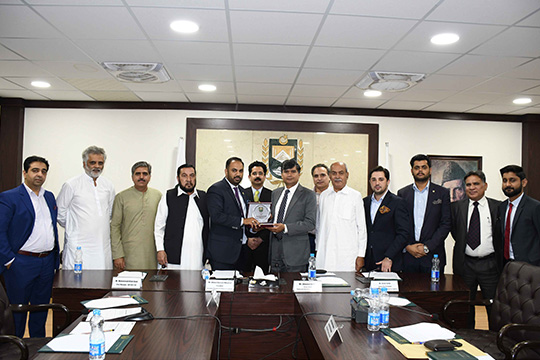SMEs are the backbone of any economy and State Bank of Pakistan was working to increase their share in private sector credit from current 8% to 17% by 2020 so that these business enterprises could achieve strong growth and play more effective role in the economic development of the country. This was observed by Shaukat Zaman, Group Head, Forex and Development, SBP while addressing an awareness session on Access to Finance for SMEs organized by Islamabad Chamber of Commerce & Industry in collaboration with SBP at Chamber House.
Shaukat Zaman said that around 6% of SMEs were currently availing loans from banks despite the fact that around 40% of them have banking relationship. Highlighting demand side issues, he said that low financial literacy, lack of collateral and documentation and complicated loan procedures were main challenges for SMEs due to which they could not avail more loans from banks for growth and expansion. He said that high risk perception, high administrative cost, lack of collateral, lack of expertise in banks for SME finance were issues due to which banks were reluctant to give loans to SMEs. However, he said that SBP was working to create an enabling regulatory framework for SMEs under National Financial Inclusion Strategy and under Policy for Promotion of SME Finance, the number of SME borrowers would be enhanced from current 180,704 to 500,000 by 2020. At this occasion, a detailed presentation on SBP’s various financing schemes for SMEs were given to the business community. It was highlighted that despite 10 percent discount rate, banks were providing loans to SMEs at only 6 percent markup rate therefore, SME should take full benefit of these financing schemes for expansion and growth.
Speaking at the occasion, Ahmed Hassan Moughal, President, Islamabad Chamber of Commerce & Industry said that SMEs were contributing 30% in GDP, 25% in exports and 78% in the industrial employment which showed their key role in the economic development of the country. However, these businesses were facing problems in access to finance as banks were preferring to invest in government securities instead of providing easy credit to private sector. He stressed that SBP should come up with more attractive financing schemes for SME sector so that this vital sector of the economy could grow fast and put the country on the path of sustainable economic development.
Rafat Farid, Senior Vice President, ICCI said that Pakistan needed to reduce trade and current account deficits and the best option for reducing these deficits was to strengthen SMEs by providing them easy access to finance. He appreciated the initiative of SBP for introducing various financing schemes for SMEs and hoped that they would help in promoting SME sector.


